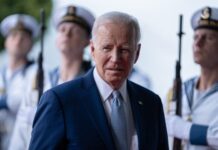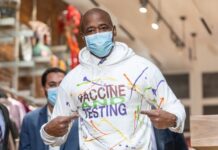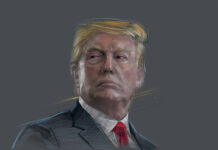
In a bold move that has caught the attention of international observers, a former high-ranking U.S. official has openly criticized China’s handling of a recent disease outbreak. The ex-White House Chief of Staff under President Obama, who currently serves as the U.S. ambassador to Japan, has taken an unorthodox step by breaking diplomatic ranks and demanding transparency from Beijing regarding a mysterious pneumonia outbreak affecting children.
The situation has become a source of global concern as hospitals in several Chinese cities have been overwhelmed since May, with the influx of respiratory illnesses among children. Despite the urgency, it was not until recently that these incidents were reported to international authorities, raising serious questions about China’s commitment to global health transparency.
Eyewitness footage shows an overcrowded waiting area at Beijing Children’s Hospital as China grapples with a surge in respiratory illnesses in its first full winter since easing COVID-19 restrictions. https://t.co/GfBCLFckUP pic.twitter.com/uD88FwWYlw
— ABC News (@ABC) November 27, 2023
The World Health Organization (WHO) has made a public call to China for the release of health records, highlighting the critical nature of the situation. However, Chinese officials have responded by denying the presence of any “unusual or novel” pathogens, attributing the surge in illnesses to common infections that have rebounded following the country’s stringent lockdowns.
The former Chief of Staff, Rahm Emanuel, has expressed skepticism over China’s explanations, pointing out the need for full cooperation with the international community. He emphasized that such cooperation is not merely an option but a public health imperative. His comments reflect a growing frustration with what many see as China’s pattern of obfuscation and delay in matters of public health.
Barack Obama and Dr. Fauci are ready for the next pandemic. pic.twitter.com/Fjs5ylrvoj
— Shadow of Ezra (@ShadowofEzra) November 26, 2023
Doctors and health agencies within China have attributed the outbreak to a combination of Covid, RSV, flu, and mycoplasma pneumoniae, also known as “walking pneumonia.” They suggest that the harsher illness experienced by children could be due to weakened immunity from prolonged lockdowns—a phenomenon not dissimilar to what other countries, including the U.S. and UK, faced last year.
However, doubts persist about the level of transparency provided by China, with some drawing parallels between this outbreak and the initial weeks of the Covid crisis. China’s history of covering up the SARS epidemic in 2003 and the delayed reporting of Covid-19 in late 2019 has left many wary of the country’s disclosures.
Local media reports have indicated that hospitals in Beijing and Liaoning province are struggling to cope with the number of sick children presenting unusual symptoms such as lung inflammation and high fever without coughing. This has led to alerts from disease surveillance systems and calls for more information from international health bodies.
The WHO, after an “official request” for more data, stated that they had communicated with officials from the Chinese CDC and Beijing Children’s Hospital. The information provided suggested increases in certain pneumonia cases since May, and RSV, adenovirus, and flu since October. Yet, the WHO also noted that no changes in disease presentation were reported by Chinese health authorities.
As the world watches closely, the demand for transparency and cooperation becomes ever more pressing. The former U.S. official’s stance is a reminder that when it comes to public health, international collaboration and openness are essential. The hope is that Beijing will heed these calls and provide the necessary information to prevent the outbreak from becoming a larger crisis.
The international community remains on alert, hoping for a swift and transparent resolution to the outbreak. The health and safety of countless children are at stake, and the world cannot afford another pandemic born from secrecy and misinformation. It is time for China to step up and demonstrate its commitment to global health security.












